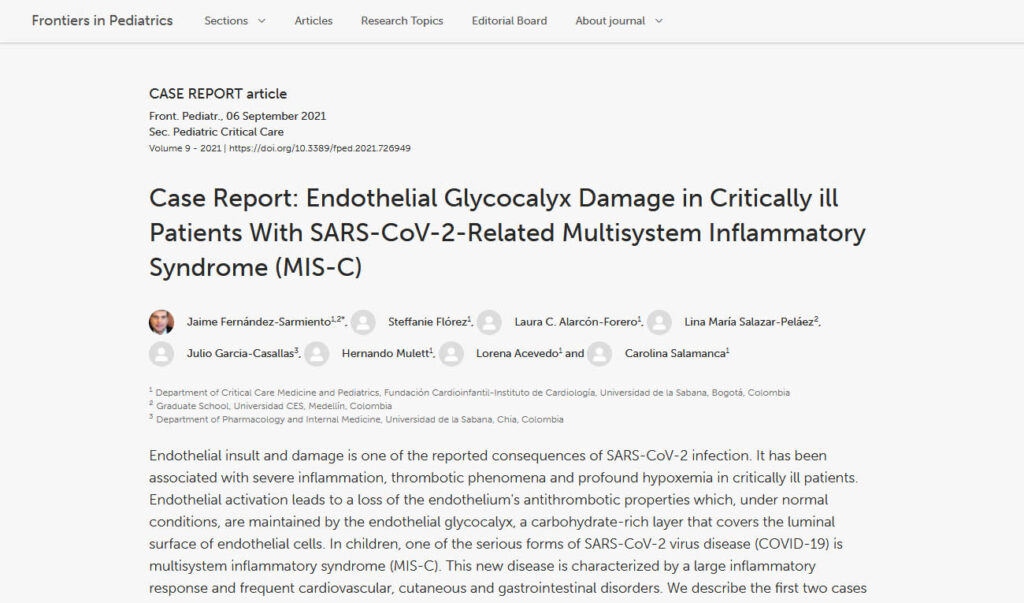Endothelial insult and damage is one of the reported consequences of SARS-CoV-2 infection. It has been associated with severe inflammation, thrombotic phenomena and profound hypoxemia in critically ill patients. Endothelial activation leads to a loss of the endothelium’s antithrombotic properties which, under normal conditions, are maintained by the endothelial glycocalyx, a carbohydrate-rich layer that covers the luminal surface of endothelial cells. In children, one of the serious forms of SARS-CoV-2 virus disease (COVID-19) is multisystem inflammatory syndrome (MIS-C). This new disease is characterized by a large inflammatory response and frequent cardiovascular, cutaneous and gastrointestinal disorders. We describe the first two cases of critically ill children with MIS-C who evidenced a large inflammatory response associated with elevated plasma and imaging biomarkers of endothelial activation and endothelial glycocalyx degradation. This microcirculation involvement in MIS-C could, at least partially, explain some of the clinical manifestations and laboratory and imaging alterations found in these patients. These findings contribute to a better understanding of this disease and suggest that medications to modulate the inflammatory response and protect or restore the endothelial glycocalyx should be considered in future studies.


